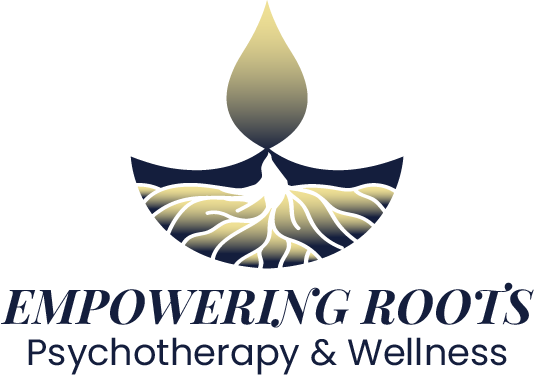Grief & Loss Therapy in Etobicoke, ON
Grief doesn't follow a timeline, and it doesn't look the same for everyone. We understand that loss in South Asian and immigrant communities comes with unique challenges around cultural expectations, family dynamics, and how we're "supposed" to grieve.
Grief isn't just death, it can be loss of culture, family estrangement, or living with emotionally unavailable family. These losses are real and deserve healing.
When Loss Feels Too Heavy to Carry Alone
Honouring Your Loss
Process your grief in a way that respects both your loved one's memory and your cultural beliefs about death and mourning.
Finding Meaning in Pain
Transform your grief into a way of carrying love that doesn't overwhelm your daily life.
Rebuilding Hope
Reconnect with life, relationships, and joy while maintaining your connection to those you've lost.
Grief Counseling That Honours Your Cultural Mourning Traditions
For many South Asian and immigrant families, grief is expected to follow specific timelines and expressions. You might be told to "move on" or "be strong" when you're still processing a significant loss. But grief is deeply personal, and healing happens at your own pace. A therapist for grief and loss will work with you to create a personalized healing journey that honours both your cultural beliefs and personal needs.
Our Grief & Loss Therapy services recognize that mourning in our communities involves complex family dynamics, religious considerations, and cultural expectations that don't always support individual healing.
We understand that your grief may stem from experiences that aren't always acknowledged, such as leaving your homeland, struggling with cultural identity, facing relationship rejection, or other deeply personal losses like those listed below:
- Immigration losses and leaving homeland behind
- Cultural identity shifts and heritage disconnection
- Relationship endings that family doesn't approve of
- Being disowned or cut off by family
- Living with emotionally unavailable/abusive family
- Loss of dreams or life plans
- Miscarriage, stillbirth, or infertility struggles
Grief can feel overwhelming, especially when others expect you to "get over it" according to their timeline. Many people in our community struggle with these specific challenges:
Specialized Grief Support for Complex Family Dynamics
Dealing with Different Mourning Styles
Family members may have strong opinions about how long you should grieve or what rituals to follow. You might feel caught between honouring traditions and your personal healing needs.
Processing Complex Grief Emotions
Grief brings up unexpected feelings like anger at the deceased, relief, or guilt alongside sadness. These emotions can feel especially shameful in cultures that emphasize acceptance.
Rebuilding Identity After Loss
Loss can completely change who you are, especially if the deceased was central to your cultural identity, family role, or sense of purpose in the community.
Unlike waiting for time to heal all wounds, grief therapy helps you actively process your loss while honouring your cultural mourning practices. You'll learn to carry your love in a way that doesn't overwhelm daily life, navigate family expectations about grieving, and find meaningful ways to honour your loved one while rebuilding hope.
As a South Asian culture specialist therapist for grief and loss, we offer personalized approaches that honour both your cultural practices and your unique healing journey.
How Grief Therapy Helps You Honour Loss While Moving Forward
Meaningful Memorial and Connection
Grief therapy helps you find culturally appropriate ways to honour your loved one's memory while building a life that would make them proud.
Healing Complicated Relationships
Work through difficult emotions when your relationship with the deceased was complex, including guilt, unfinished business, or conflicted feelings.
Personal Grief Timeline
Give yourself permission to grieve at your own pace, separate from cultural expectations about mourning periods and family pressure to "move on."
Renewed Purpose and Hope
Grief counseling helps you rebuild meaning and direction in life while maintaining a loving connection to those you've lost.
Culturally Sensitive Grief Therapy in Etobicoke
I know that traditional grief counseling doesn't always address the unique challenges facing South Asian and immigrant families dealing with loss. That's why I've developed an approach that honours both evidence-based grief work and cultural understanding. If you're in Etobicoke or the surrounding areas and are searching for “a grief therapist near me,” our therapy services provide the support and
Through grief-focused therapy techniques, family systems work, and cultural exploration, we'll work together to process your loss without abandoning your religious or cultural beliefs about death and mourning. My approach recognizes that healing doesn't mean "getting over" your loved one, it means learning to carry your love in a sustainable way.
I understand the pressure to grieve "correctly" according to cultural standards, the complexity of family dynamics during mourning periods, and the challenge of honouring your individual grief process while maintaining family relationships.
Grief Therapist Who Respects Your Religious and Cultural Beliefs
As someone who understands both the clinical aspects of grief and the cultural complexities of mourning in our community, I provide a space where your cultural and religious beliefs about death are honoured and respected. As a grief loss therapist, we understand that grief isn't always about the death of a loved one but can involve other significant losses like family estrangement or cultural disconnection.
I've worked with many South Asian and immigrant clients who struggle with grief while trying to maintain family harmony and cultural expectations around mourning. I know that healing looks different for everyone, and there's no "right" way to grieve.
My training in grief and loss therapy, combined with my understanding of cultural and religious practices around death, allows me to provide support that truly fits your beliefs and values.
Common Questions about Grief Counseling
It's normal to feel unsure or have questions about Grief. Here are some common concerns, so you can feel more at ease about taking this step.
How long should I wait before starting grief therapy?
There's no "right" time to start therapy after a loss. If your grief is interfering with your daily life, relationships, or physical health, therapy can be helpful at any stage, whether your loss was recent or happened years ago.
Will therapy conflict with my religious beliefs about death and afterlife?
No. Grief therapy focuses on helping you process your emotions and find healthy ways to cope, which aligns with most religious values. We work within your belief system and respect your cultural and religious practices around mourning. If you are looking for an online grief therapist in Ontario, we offer virtual sessions to provide flexible, accessible support no matter where you're located in the province.
What if my family thinks I should be "over it" move on by now?
Different people grieve at different paces, and cultural expectations about grief timelines aren't always realistic or helpful. We can work together on setting boundaries with family members while honouring your own healing process.




